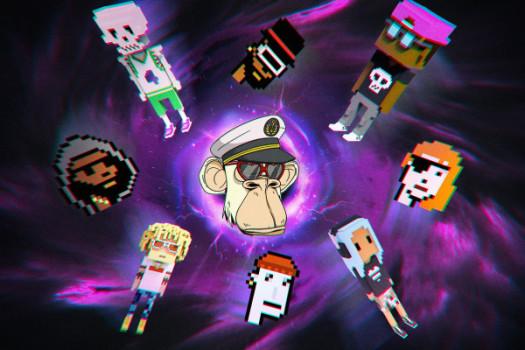
Misleading, complex, or overall rubbish

Non-fungible symbols or NFTs are marketed on the pledge of “ownership,” yet a brand-new testimonial recommends numerous makers and also customers still have no concept what that indicates. An evaluation from blockchain investment firm Galaxy Digital locates that just one of the 25 most beneficial NFT tasks also attempts to provide customers straight copyright legal rights to the hidden art, and also numerous supply complex or ambiguous licenses regardless of current initiatives to tidy up the area.
The Galaxy report analyzes the regards to significant NFT tasks, consisting of the Yuga Labs task Bored Ape Yacht Club (BAYC), Gary Vaynerchuk’s VeeFriends, and also World of Women in addition to the “metaverse” social systems Decentraland and also Sandbox. It ends that “the vast majority of NFTs convey zero intellectual property ownership of their underlying content,” and also a lot of their drivers (consisting of Yuga Labs) “appear to have misled NFT purchasers” concerning the level of their legal rights. Some tasks have actually attempted to avoid complication by taking on the commonly understood Creative Commons certificate, yet while doing so, some have efficiently untethered IP legal rights from the NFT — making it “impossible” for NFT owners to safeguard special legal rights to the art.
“It’s hard to imagine that Seth Green and his production studio didn’t negotiate a separate deal”
This mirrors the verdicts of a testimonial by Cornell University and also the Initiative for CryptoCurrencies and also Contracts, adjusted by The Kupon4U previously this year. And both evaluations call out BAYC, among the biggest and also most significant NFT collection, as being especially mute. The BAYC terms assure that customers “own” the hidden art for their token “completely,” yet they likewise give a certificate that straight negates this insurance claim. (In short, if you in fact had the art, you wouldn’t require a certificate to utilize it.) Galaxy is extremely doubtful of the insurance claim that major artists like Seth Green are in fact counting on NFT regards to solution. “It’s hard to imagine that Seth Green and his production studio didn’t negotiate a separate deal with Yuga,” it rather fairly ends.
That claimed, Yuga Labs recently introduced a considerably upgraded terms of service for its CryptoPunks and also Meebits collection, setting out what a much more professionalized variation of NFT licensing may appear like. Galaxy likewise calls out the “noble effort” World of Women (WoW), the only task in its study that attempts to officially move copyright possession of art with its NFTs. But it states WoW still doesn’t make clear exactly how marketing the NFT transfers the legal rights to any type of acquired jobs based upon that copyright.
When the IP legal rights remain with the NFT’s initial makers, they can unilaterally alter the terms in means some NFT customers may despise. This just recently occurred with the Moonbirds task, which revealed a button to the CC0 (or “no copyright reserved”) Creative Commons certificate after informing customers for months that they “owned” their Moonbirds art. CC0 efficiently indicates anyone, not simply the NFT owner, can make use of the art — something that supposedly sunk a minimum of one Moonbirds proprietor’s pending licensing handle a brand name.
Galaxy’s record concentrates on the objective of boosting NFT licenses. This could be practical for NFT enthusiasts that intend to accredit their acquisitions or make follower art of them. But the present state of play doesn’t suggest they’re a terrific method to handle copyright legal rights — a minimum of not without a whole lot even more job.








